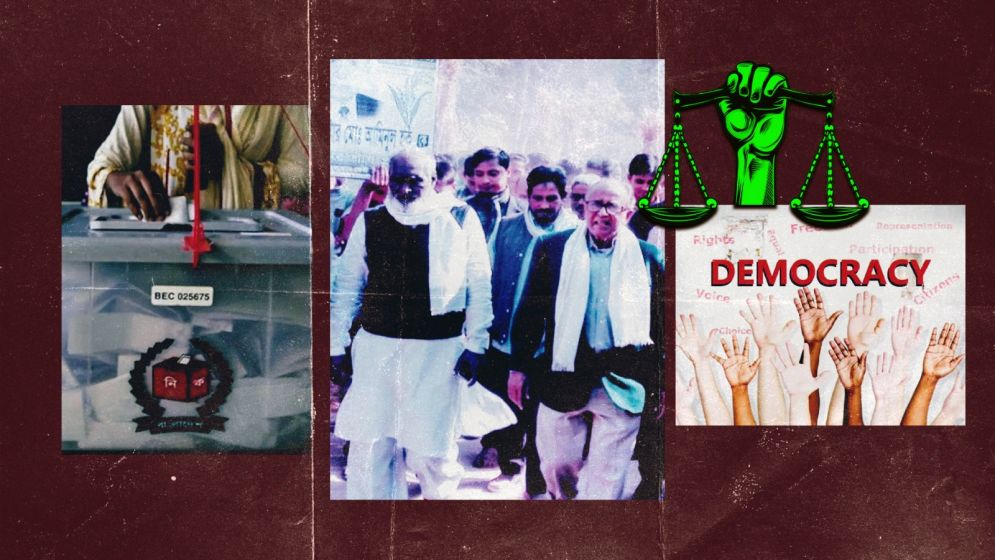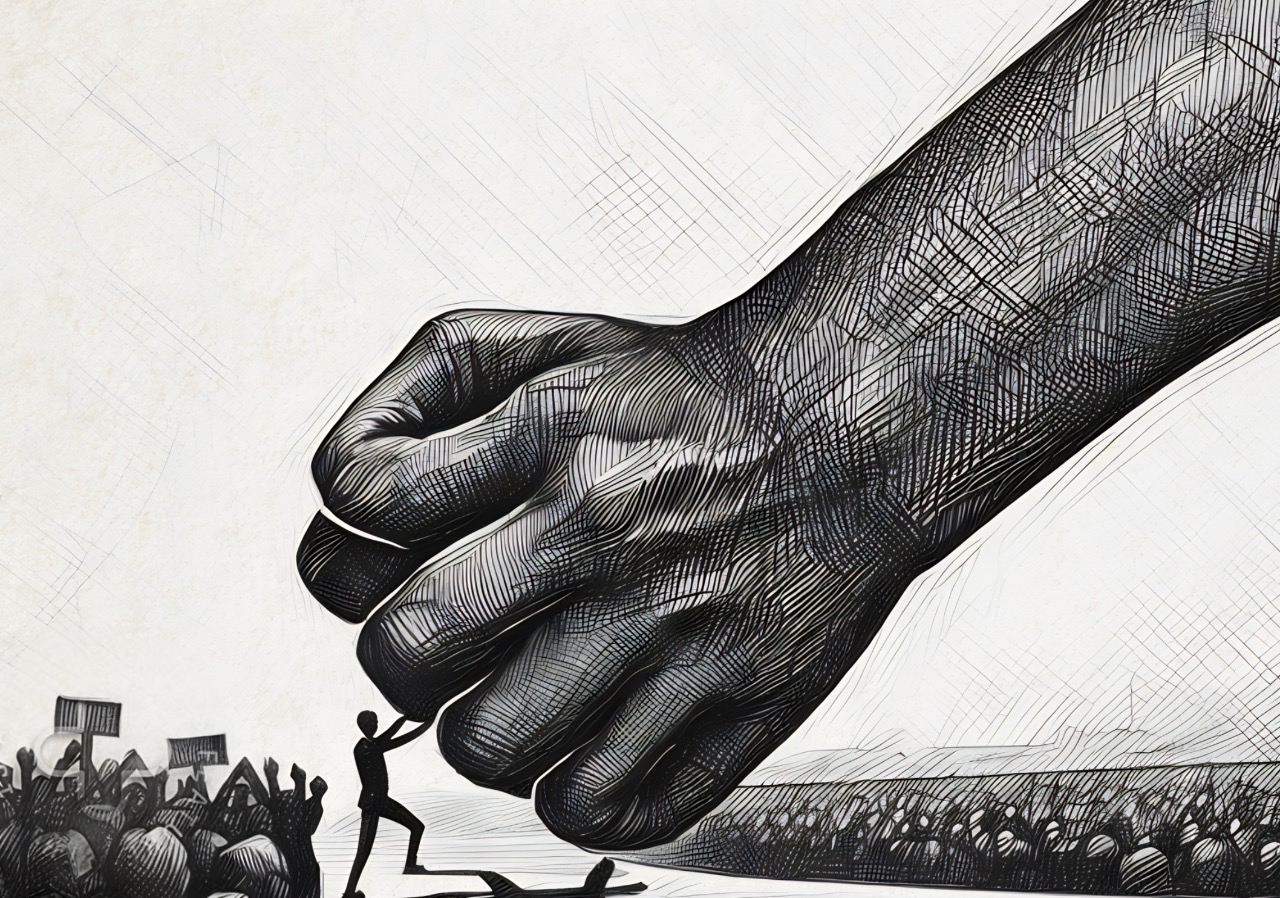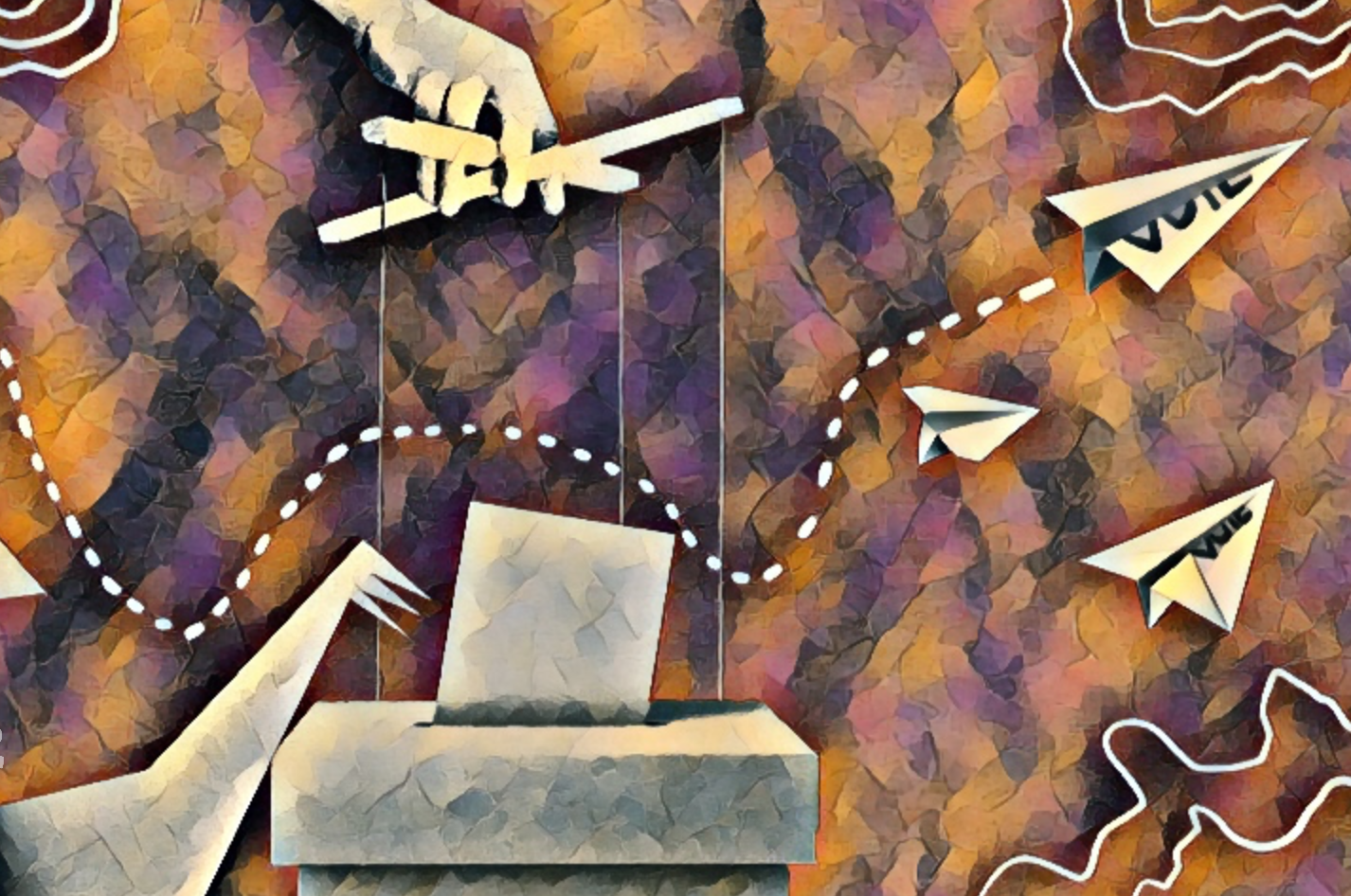Standing for democracy: The legacy and loss of Barrister Aminul Hoque

April 21, 2025, marks six years since the passing of my father M. Aminul Hoque, a prominent figure whose life journey echoed the tumultuous path of Bangladesh’s own struggle for democracy and self-determination.
This year’s anniversary holds particular significance—it is the first time my family and loved ones are able to commemorate his memory in a free and democratic Bangladesh.
My father’s life was indelibly shaped by the cycles of authoritarianism and resistance that defined his country’s political landscape. Twice, he was forced into exile due to military-backed crackdowns on democratic forces.
In 1969, he fled a police warrant during the mass uprising against General Ayub Khan’s dictatorship in then-East Pakistan, ultimately traveling to England, where he completed a law degree at Lincoln’s Inn.
Decades later, in 2007, he once again sought refuge—this time in the United States—after being identified as a key political target by the military-backed caretaker regime led by General Moeen U Ahmed.
During that exile, my father was invited to attend the first National Prayer Breakfast hosted by President Barack Obama, even as politically motivated charges against him in Bangladesh resulted in a 34-year prison sentence in absentia—a verdict later overturned by the High Court.
Returning to his homeland in 2009, he devoted his remaining years to advocating for democratic governance, increasingly at odds with what he and others described as an authoritarian drift under Prime Minister Sheikh Hasina.
Diagnosed with lung cancer in 2017, he faced a painful choice: to prioritize his own health, or to confront what he viewed as a greater illness afflicting the nation’s democratic institutions. True to form, he chose the latter.
In 2018, despite his deteriorating condition, he took part in a national election campaign—one marred by allegations of widespread state-sponsored repression.
Those close to him recall the 2018 election as a time of great personal and political anguish, when the opposition's contest was not merely against a rival party but against the full force of the state apparatus.
Despite promises of neutrality, government institutions including the police were widely accused of working to ensure the ruling Awami League's victory, leading to comparisons with other historic betrayals in South Asian history—from Mir Jafar’s duplicity at Plassey to Yahya Khan’s actions in the days before the 1971 Liberation War.

The heavy cost that he needed to pay
In retrospect, the toll the 2018 election campaign took on my father is unmistakable in the photographs and video footage from those final months. His once well-fitted clothes hung loosely on his frame, and the physical demands of a national campaign weighed heavily on his already ailing body.
Though he never spoke of it, the struggle was evident. What was perhaps even more difficult for him than the physical strain was witnessing the erosion of the very institutions he had spent a lifetime defending.
A staunch believer in liberal democracy and the strength of institutional politics, my father had placed great faith in the judiciary and civil administration. To see these bodies repurposed into instruments of repression in the service of partisan power was, by all accounts, a deeply painful experience.
His campaign in the Rajshahi-1 constituency unfolded in an atmosphere that many recall as hostile and surreal. Once a model of infrastructure, the region's roads had decayed by 2018 into a patchwork of broken routes, forcing campaigners to rely on motorcycles to reach remote villages like Godagari and Tanore.
Yet even this became a perilous act. Anyone who offered him a ride was liable to be arrested that very night, reportedly assaulted in custody, and then detained for the remainder of the campaign.
The election itself was marked by open intimidation. The ruling party’s candidate, in a gesture that seemed drawn more from cinema than politics, paraded in front of our family residence the night before the vote—tearing down opposition posters by hand, in violation of the official campaign ban.
That same night, police detained him and held him in custody, in what many saw as a clear attempt to demoralize his supporters.
Rajshahi-1 was among the few constituencies that saw bloodshed during the contested 2018 polls. In the days that followed, then-Prime Minister Sheikh Hasina publicly threatened to file murder charges against my father, remarks she made during the parliamentary swearing-in at Durbar Hall in January 2019. Meanwhile, his condition deteriorated.
The cancer, already advanced, spread to his brain by April—likely hastened by the physical and emotional toll of the campaign.
During what should have been a time for quiet reflection and preparing for goodbye, his family instead found themselves entangled in legal battles and the complex, often obstructed process of securing overseas medical care under a repressive political regime.
In private moments, the question lingered to
our mind: was it worth it?
The implications of 2018 election
While the 2018 election delivered an overwhelming—albeit widely discredited—victory to the ruling party, it also exacted a steep reputational cost.
In seeking to avoid a repeat of such backlash in 2024, the government implemented a "dummy election" model—encouraging numerous candidates within the Awami League’s ideological orbit to run in order to fabricate the appearance of competition.
But the strategy backfired. The fragmentation eroded the party’s internal cohesion, and when popular unrest erupted in July 2024, the government was unable to quell the protests without full deployment of police, paramilitary, and military forces.
In the end, not even the combined might of the state’s security apparatus could prevent the collapse of political control. On August 5, 2024, autocrat Hasina fled to India, marking the final unraveling of a political trajectory whose roots, many believe, stretch directly back to the consequences and excesses of the 2018 election.
For his family, and for many others, my father’s sacrifice stands as both a deeply personal loss and a chapter in a larger national reckoning—a reminder of the cost of silencing dissent, and the enduring resilience of those who choose to speak.
My thoughts drifted back to another moment etched in memory—July 15, 2001, the day Chief Advisor Latifur Rahman was sworn in. The night before, my father had joined the midnight rally at the BNP headquarters in Naya Paltan, his spirit buoyed by the hope of a democratic transition.
I remember how he moved through that day—his face lit by an irrepressible smile, his steps light with the sheer relief of seeing the end of five years of what he considered Awami League misrule. It was as if a great weight had been lifted.
I can only imagine the quiet, immense satisfaction he would have felt witnessing the final fall of Sheikh Hasina—a culmination of battles he had waged with his voice, his body, and, in the end, his life.
And yet, triumph arrived hand-in-hand with absence. Victory, tempered by grief; success, shadowed by longing.
It is a feeling not unfamiliar in the pages of history. Upon the assassination of President Abraham Lincoln, just as the Union emerged victorious from the American Civil War, Walt Whitman captured the sorrow of a nation unable to celebrate without mourning. He wrote:
My Captain does not answer, his lips are pale and still,
My father does not feel my arm, he has no pulse nor will,
The ship is anchor’d safe and sound, its voyage closed and done,
From fearful trip the victor ship comes in with object won;
Our nation has paid dearly in blood for every victory regarding its liberty and rights. I am proud to count my father and his sacrifice as part of that price.
—

